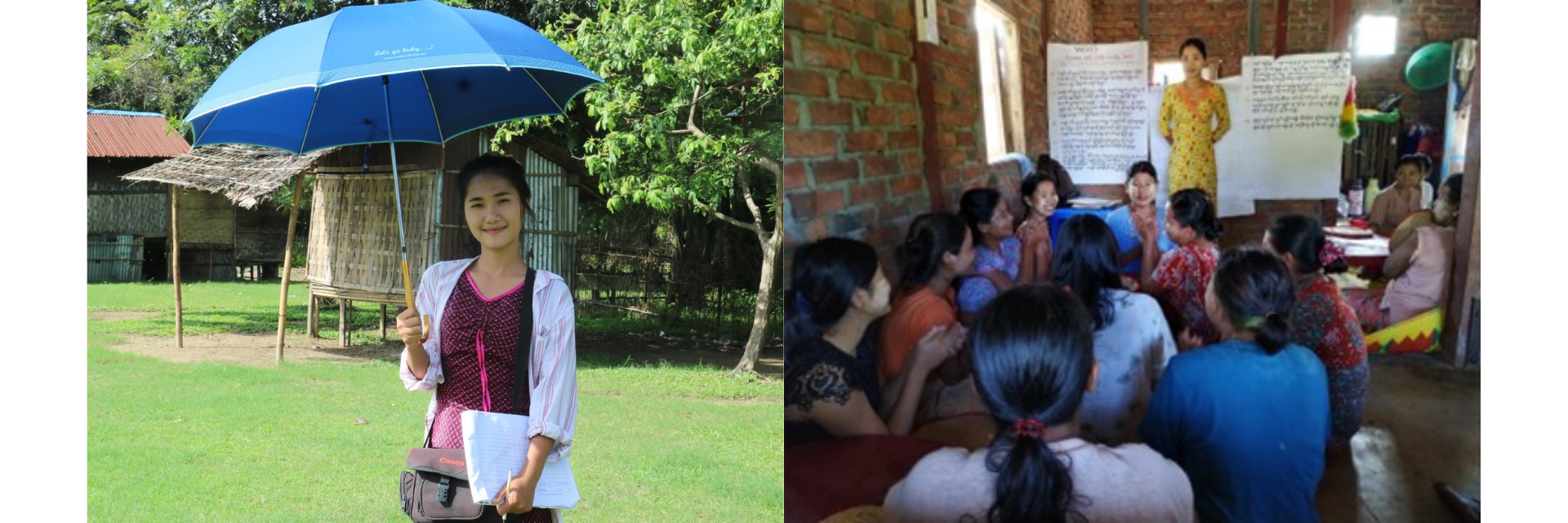
Shwe Sin's story: Rising from the Storm
It was after the cyclone that Shwe Sin found her voice. In the wake of Cyclone Mocha's devastation in Myanmar's Rakhine State, the 25-year-old volunteer played a crucial role in her community's recovery.
After the cyclone struck in May 2023, it brought destruction across Rakhine State, leaving many families homeless. Among them was Shwe Sin's family, whose home was destroyed -- the roof torn off and the walls collapsed. As the primary breadwinner for her family of five women, Shwe Sin faced the challenge of rebuilding her life while helping her community.
With the support of the Government of Canada through the Humanitarian Coalition, CARE Canada partnered with Phyu Sin Saytanar Action Group (PSSAG) to provide essential aid and empower local leaders like Shwe Sin to guide recovery efforts.
Cyclone Mocha, the most powerful storm to hit the region in more than a decade, left 27 villages in Maungdaw and Buthidaung townships struggling with damaged infrastructure and displacement. CARE and PSSAG responded by providing shelter kits, hygiene supplies, water purifiers, and multi-purpose cash assistance to 3,925 households.
For families like Shwe Sin's, this aid was a lifeline. A major success of the project was the distribution of multi-purpose cash assistance, which allowed families to prioritize their needs and make their own choices--whether it was for materials to fix their homes, food, or medicine. This flexibility was essential in a time of crisis when every family's needs were different, noted Shwe Sin.
In addition to receiving aid, Shwe Sin became deeply involved in the relief efforts. Despite her family's difficult circumstances, she volunteered to help coordinate aid distributions in her village. Through awareness training arranged by PSSAG, a women-led organization, Shwe Sin learned about the prevention of sexual harassment, exploitation, and abuse, as well as child protection, nutrition awareness, and livelihood activities. She began delivering public education to groups of 30 women daily, but soon word spread throughout the community, and up to 50--60 people would join her for the sessions.
As the project nears its end in early 2024, its impact is evident not only in the tangible relief provided but also in the empowerment of local leaders like Shwe Sin, whose own journey from survivor to community leader exemplifies the transformative power of resilience and community-driven recovery efforts.
"Before receiving trainings from PSSAG, I feared to stand in front of people, even as a volunteer in my community for six years," she says. "Public presentation was one of my big challenges -- I was afraid and nervous. By cooperating with PSSAG under this project for the Mocha response for about a year, I am completely different from the previous Shwe Sin. I have now improved my knowledge and am more confident in providing community services."